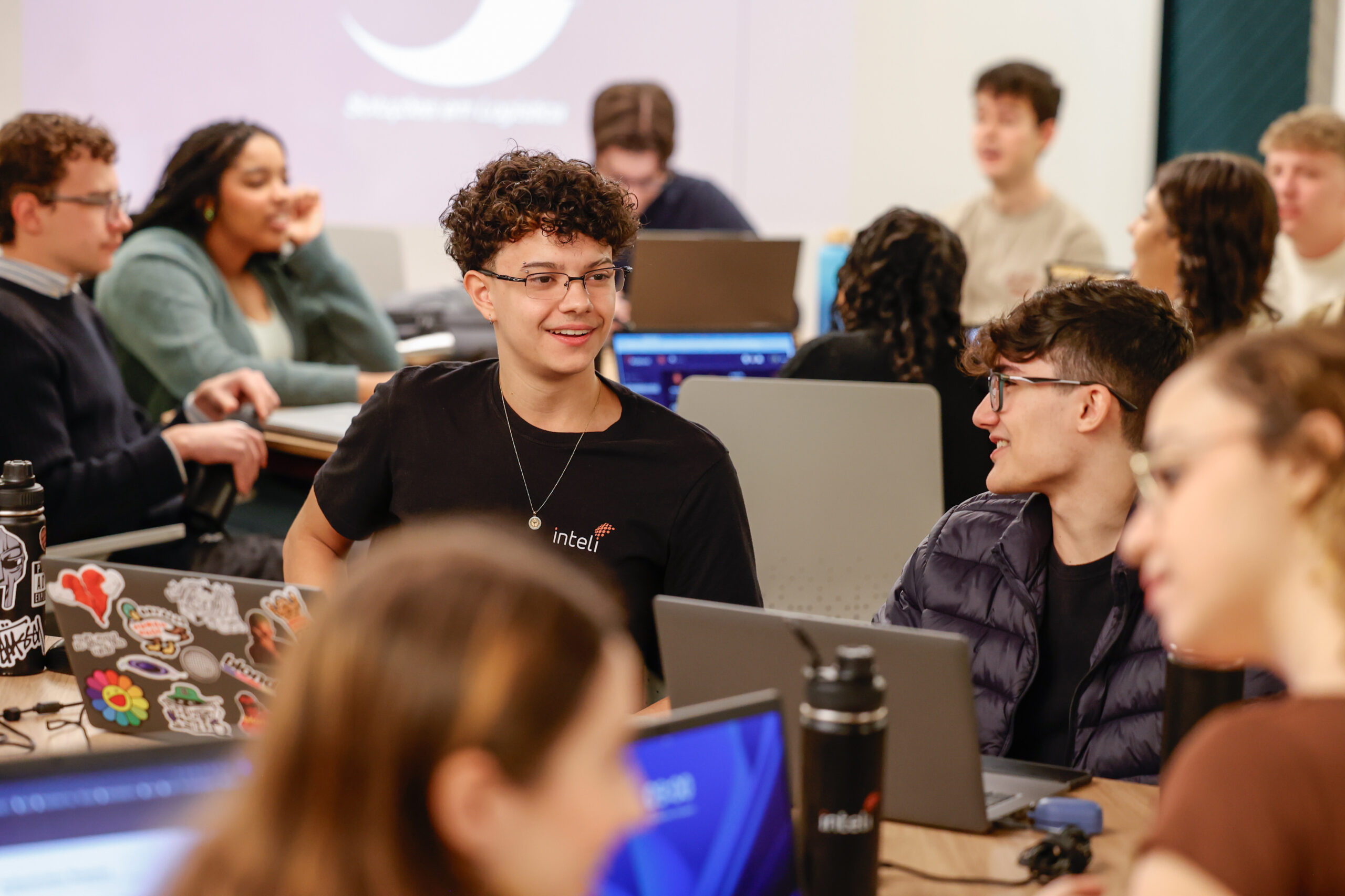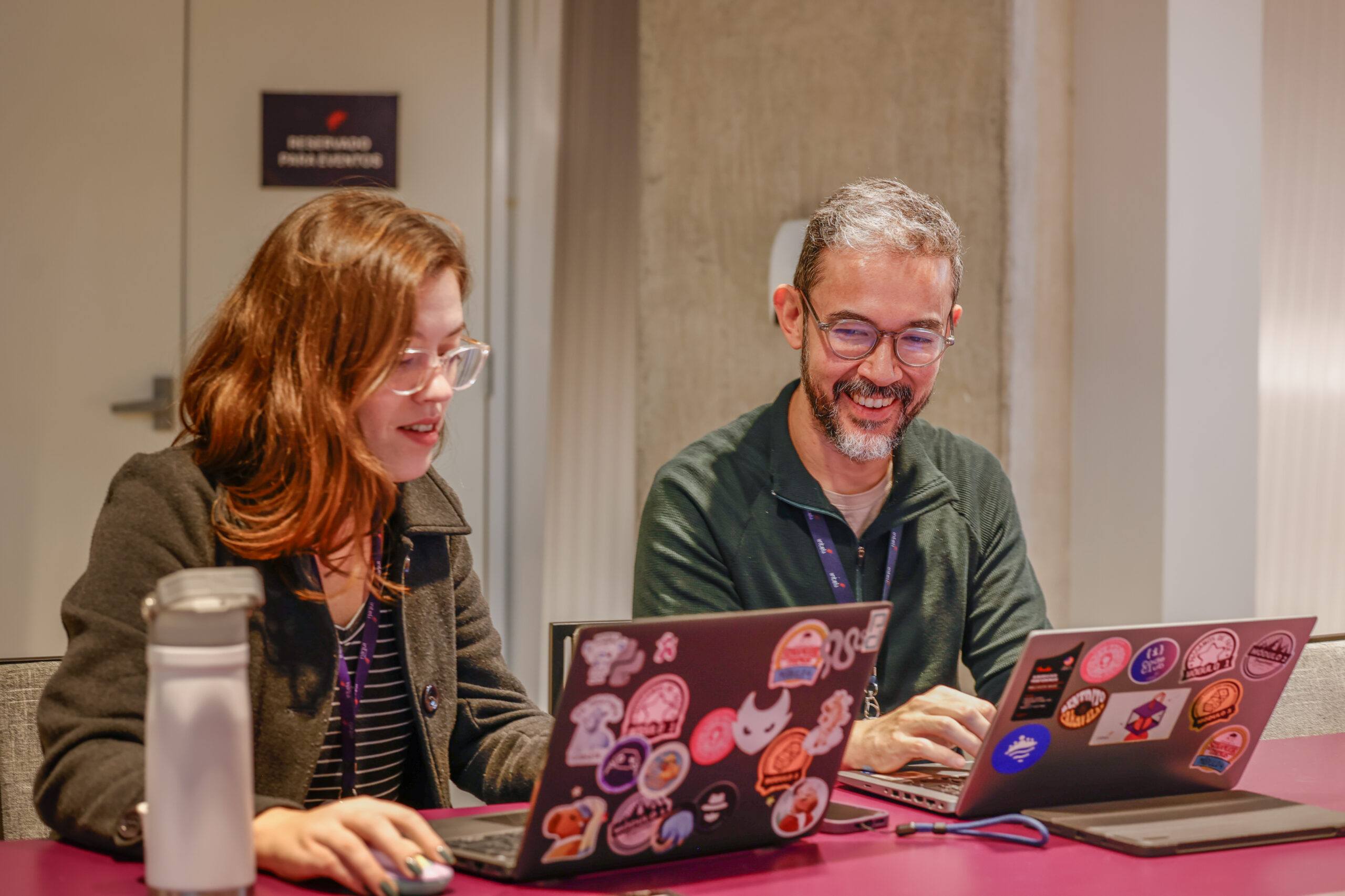Welcome to the fantastic world in which students are thinking beings, autonomous, protagonists and learn theory and practice to solve real problems.
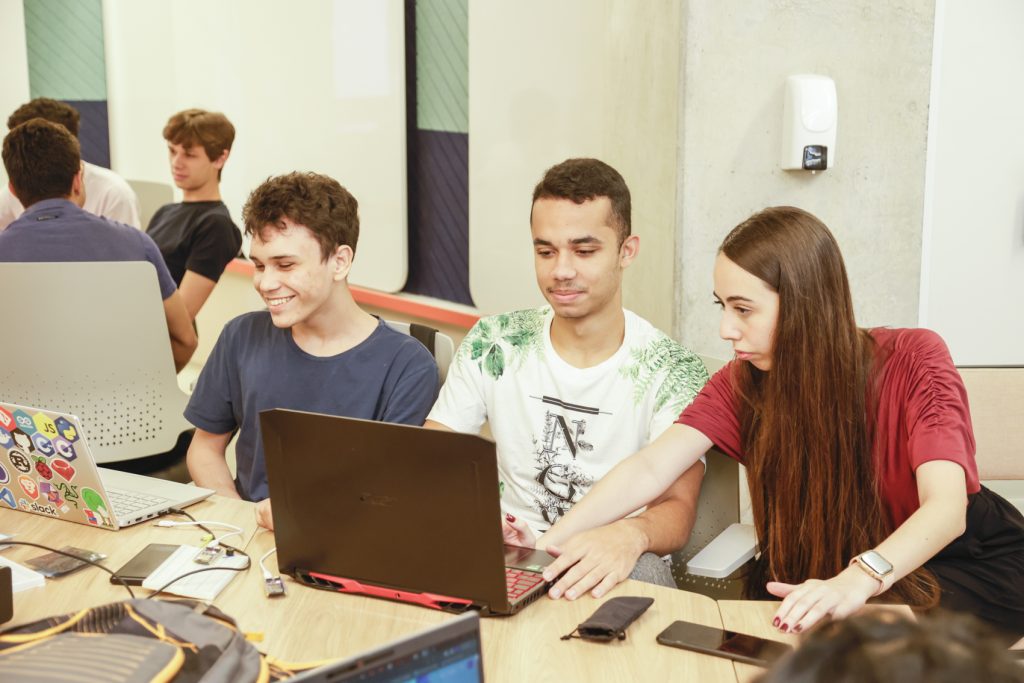
Digital transformation is full of difficult words. Virtual reality, cryptocurrencies, artificial intelligence, quantum computing, blockchain, e-learning. And one of the big problems in the V.U.C.A (volatile, uncertain, complex and ambiguous) world is the gap between the traditional teaching model and the demands of the job market. Here at Inteli, we believe that the way to connect these two realities is through a disruptive methodology based 100% on project-based teaching. Come and see how!
A team that isn't winning doesn't move!
The academic training of a computer professional should focus on solving real problems, in a mix of theory and practice. The problem is that the 21st century learning process is still based on the classroom format where the teacher is the holder of knowledge while the student studies, memorizes and takes tests.
The academic training of a computer professional should focus on solving real problems, in a mix of theory and practice. The problem is that the 21st century learning process is still based on the classroom format where the teacher is the holder of knowledge while the student studies, memorizes and takes tests.
"As a result, companies complain that recent graduates don't have the necessary skills to hit the ground running," says Maurício Garcia, professor and academic consultant at Inteli.
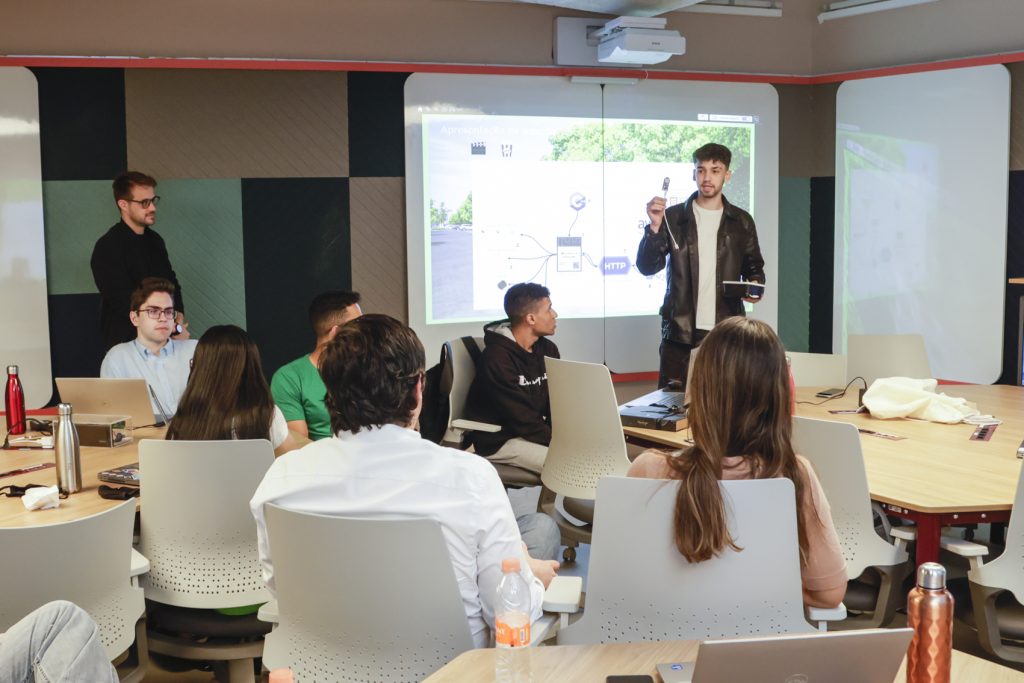
Project-based teaching is designed exactly to solve this gap, bringing dynamism and a practical sense to learning, without losing all the theoretical density that the course demands.
A revolution in the learning process
Inteli's Project Based Learning (PBL) is based on a real problem in which students are challenged to develop a prototype of a product or solution, using the course's curricular content. In this process, they always work in groups and learn collectively and collaboratively.
"We're not inventing the wheel, because project-based learning has been around for a long time. What's innovative is putting the methodology into practice at a high level of excellence with teams that are prepared and passionate about education and their work." says Flávia Santoro, Inteli's Academic Director.
It is worth remembering that the Ministry of Education does not impose an academic model on universities. The National Curriculum Guidelines point to competencies to be developed so that students become professionals in accordance with the graduate profile of each course. And where did Inteli look for inspiration to build a disruptive college?
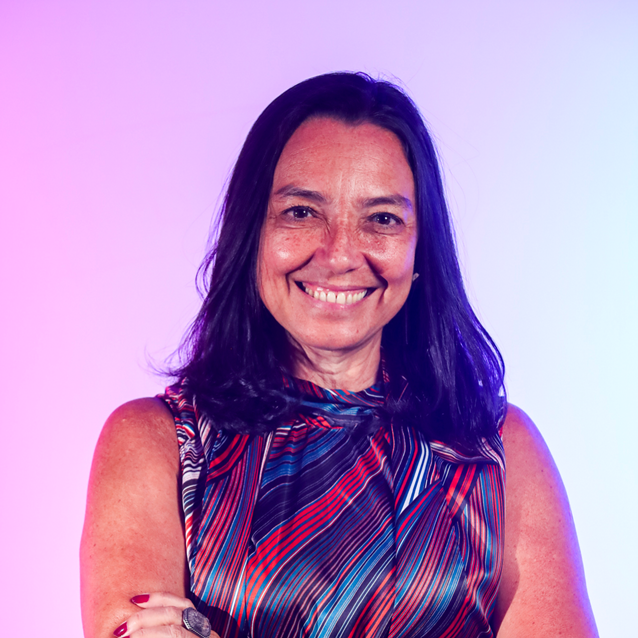
FLÁVIA SANTORO
Academic Director
"We got to know various institutions around the world, such as Olin College, but in the end it was Inteli's academic team that created the model," says Maurício, says Maurício, who after almost 40 years working in education, had the opportunity to put all his experience into practice with the Inteli project.
How do students learn?
The courses are organized into ten-week modules. In each module, students develop a different project with real market partners.
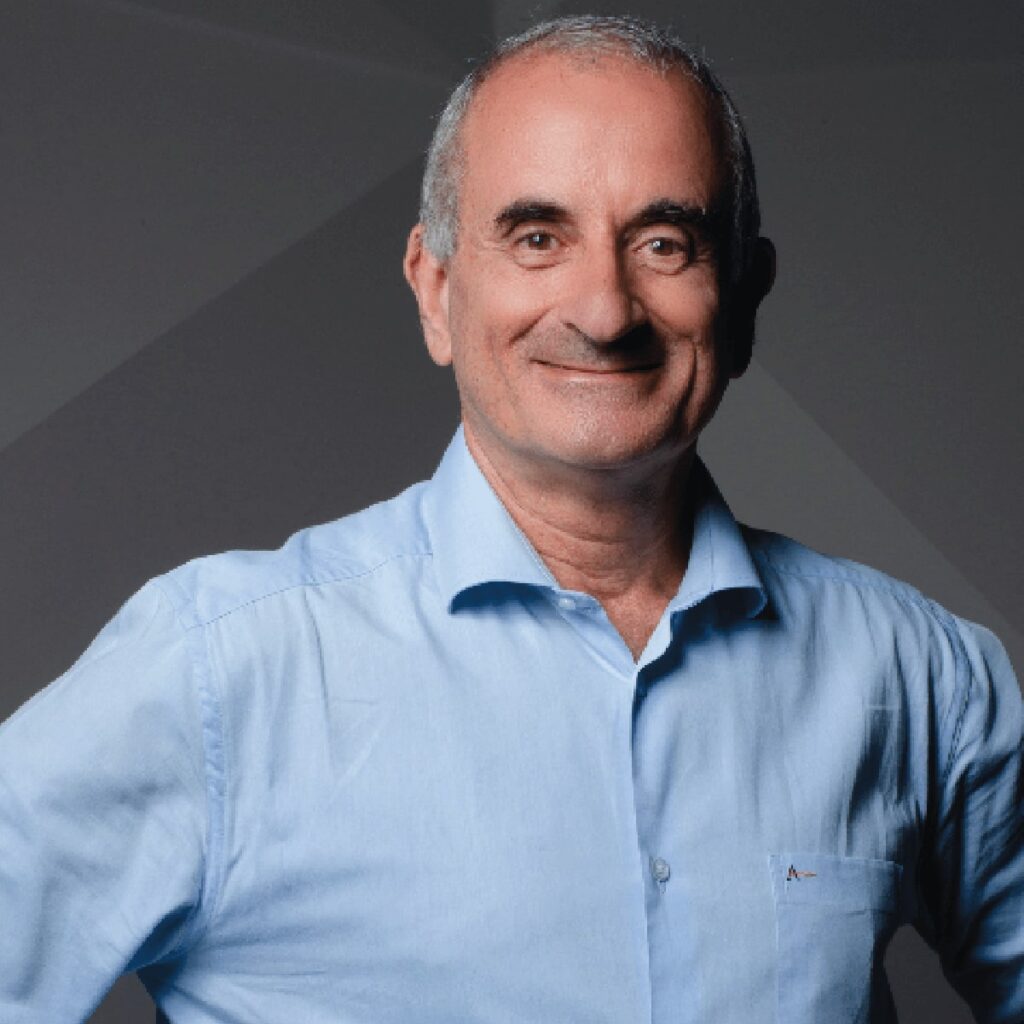
MAURÍCIO GARCIA
Academic Advisor
"At first, it was very different, but when I started to get the hang of it, I realized how effective learning through projects is. It's incredible to see how we can build such interesting things in a relatively short period of time," says Allan dos Santos Casado, a student on the Computer Science course.
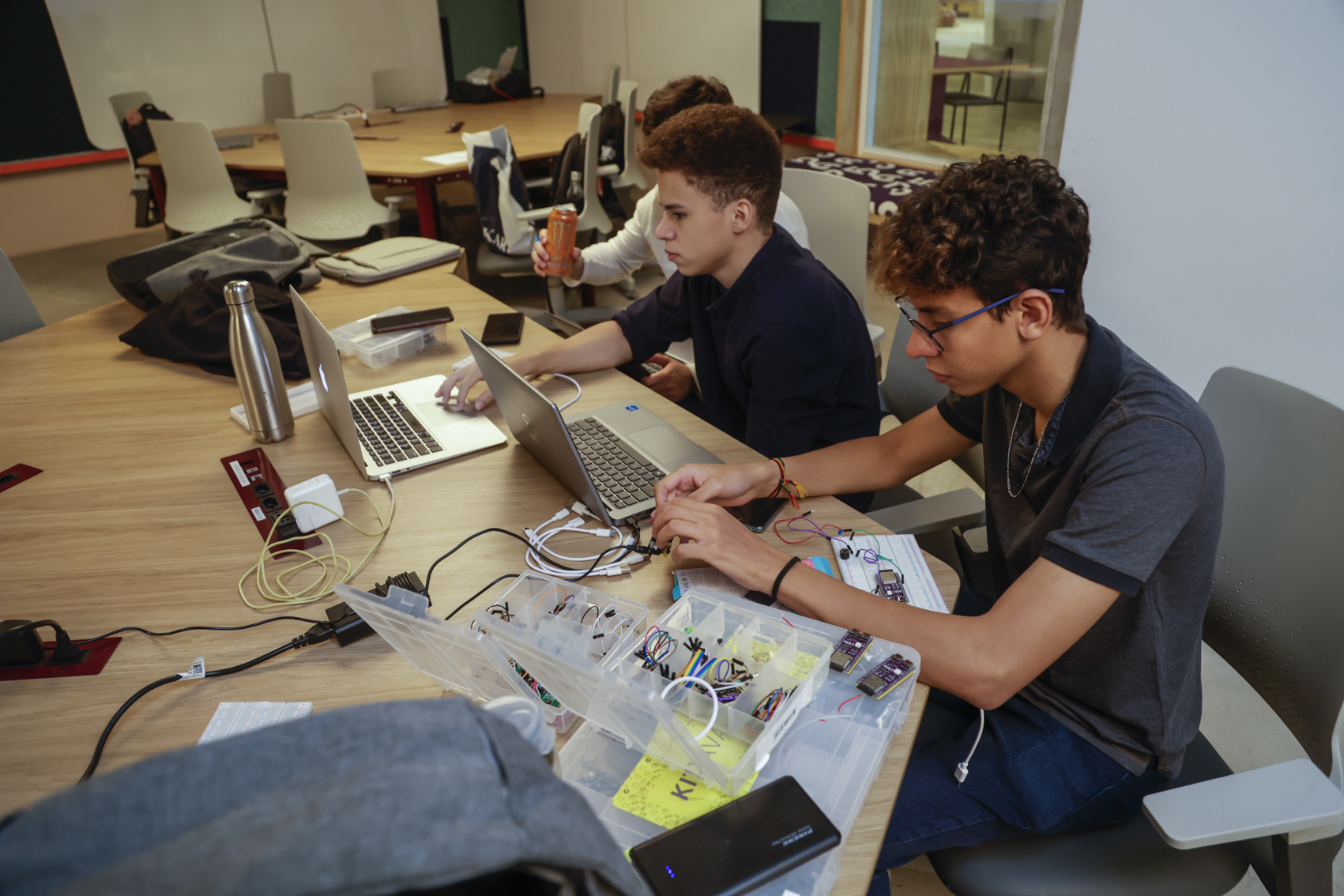
Remember, there is no magic! Everything is designed so that during the module students develop computing, business and leadership skills, in a model organized around the pillars of self-study, instruction and development.
Pedro Munhoz de Souza Rivero, from the Computer Science class, says that the routine at Inteli in these first two months has been far from monotonous. "We have a lot of flexibility on a daily basis, involving classes, individual studies and project development. So far I haven't felt that classic feeling that the first year of any course is always a necessary evil," he adds.
In practice, teachers select study materials according to the subjects covered in the Module, and it is up to the student to study the theory individually. Then, in the classroom and using active teaching and learning methodologies, students meet specialist teachers to ask questions. Finally, it's time to use all the learning to work in groups to build projects.
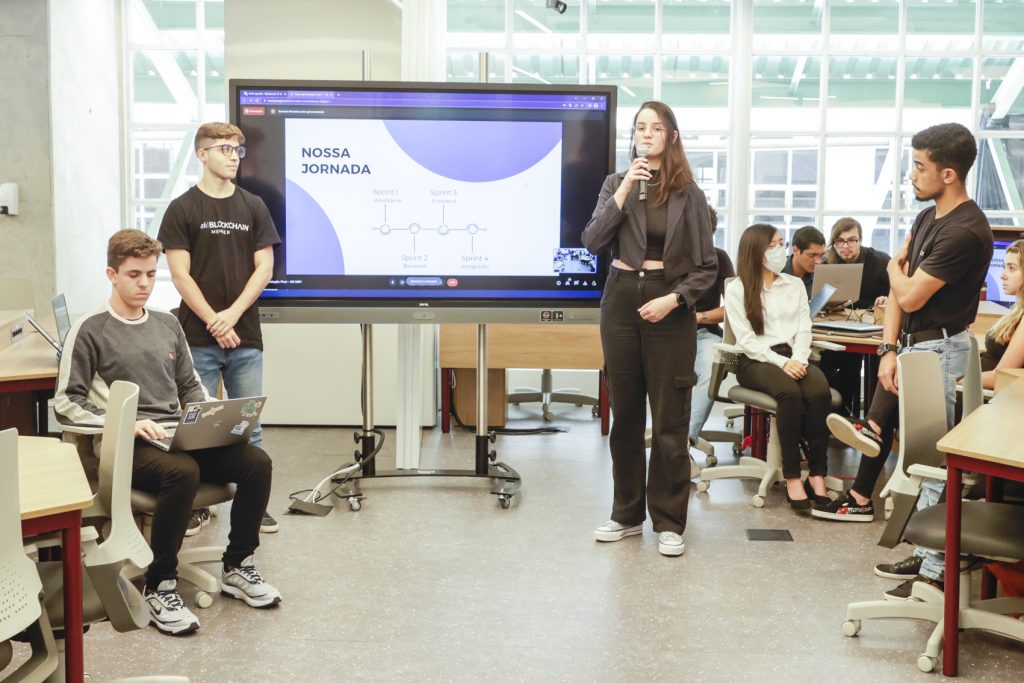
The key word is autonomy. In this model, young people need to develop self-knowledge, planning and collaboration. Traditional group work, where only one person does it and everyone gets a grade, or each person does a part and puts it all together without any sense of the whole, doesn't work in a real project. "It's been challenging, but learning becomes enjoyable when they realize that they are actually building something unique. In fact, it should always be like this, right?" adds Flavia.
To paraphrase astronaut Buzz Lightyear, "To infinity and beyond".


